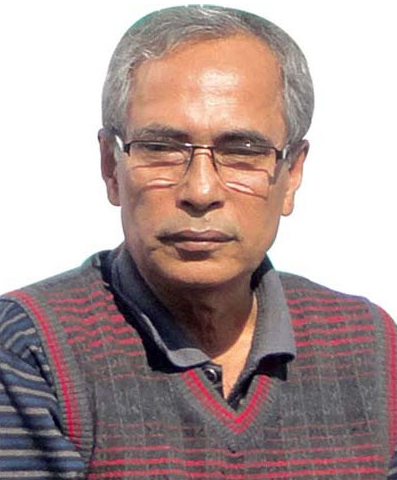December 15, 2024
By: information
Category: RTI Column
December 15, 2024
Shamsul Bari and Ruhi Naz
Over one hundred days have passed since an interim government took over the reins of power in Bangladesh, promising a more just, democratic, law-based, and discrimination-free society. Fulfilling such expectations is not easy, as the transition from the violent overthrow of the previous regime is challenging and time-consuming. The new government soon recognised that a priority area for its attention would be governance and restoring governmental authority to ensure a smooth transition.
The Right to Information (RTI) Act 2009 has rich potential to contribute to good governance at this critical moment in our history. There can be no better law to promote a collaborative interaction between public authorities and citizens for transparent and accountable governance. But it needs guiding hands.
Like many other institutions of governance in the country, the RTI regime was disrupted in the aftermath of the July-August mass uprising. Following the spate of resignations or forcible removal of high officials of key public bodies, the country’s three information commissioners also had to go. The Bangladesh RTI Commission was thus left rudderless and remains so till date. This must end quickly as citizens’ role in utilising the law to monitor the work of all public bodies is crucial at this critical juncture of the nation. The Information Commission must be reconstituted as a matter of priority. Read more
No Comments →
November 18, 2024
By: information
Category: RTI Column
Friday, November 15, 2024
Shamsul Bari and Ruhi Naz
Since the interim government of Bangladesh assumed power in August 2024, we have
been advocating for the immense potential of the Right to Information Act (RTI) 2009
in promoting transparent and accountable governance. In today’s column, we highlight
a crucial principle of transparency currently missing from our RTI Act but deserving
inclusion: the “public interest override.” The principle has been incorporated into the
laws of many liberal democracies worldwide, making it a part of a larger global
movement.
International standards for transparent governance, which have evolved since the end
of the Second World War, advocate for the “principle of maximum disclosure” as the
ideal for all RTI laws. It asserts that, as a general rule, citizens have the right to access
all information held by the government, with very few exceptions. These exceptions
should be as narrow as possible and aimed solely at protecting the state’s legitimate
interests. In other words, public interest should be the yardstick when balancing
citizens’ right to information concerning governance and the state’s legitimate need to
safeguard certain sensitive information. Read more
No Comments →
October 15, 2024
By: information
Category: RTI Column
Tuesday, October 15, 2024
Shamsul Bari and Ruhi Naz
The country’s fledgling Right to Information (RTI) regime has not escaped the popular demand for sweeping governance reform since the interim government assumed power. This was inevitable as the entire tenure of the RTI Act 2009 in Bangladesh coincided with the 15-year rule of the ousted government. Like many other laws of the land, it too suffered the debilitating consequences of an autocratic rule affecting all democratic institutions of the country. However, the inherent potential of the law to establish people’s oversight of government activities remains intact. A new government with a mandate to restore peoples’ sovereignty has ignited new hope for it.
Since its inception, the primary objective of this column has been to enhance the effective use of the RTI Act by citizens to promote good governance. The relatively scarce use of the law over the years has yielded some positive outcomes in a limited field of government activities, but no significant gains were made on larger issues of national importance. Read more
No Comments →
September 18, 2024
By: information
Category: RTI Column
Monday, September 16, 2024
Shamsul Bari and Ruhi Naz
Since the formation of a new popular government in Bangladesh in August 2024, the prevailing theme in the country has been reform and change of the entire governance mechanism. A popular outcry, particularly from students and the youth in general who led the movement to oust the previous regime, has called for a complete overhaul of all branches of the government, which have been mired in years of corruption and malpractice. The catchphrase for change is the establishment of transparency and accountability for all public servants to the people they serve.
While experts work out the reforms, citizens are also responsible for playing a more decisive role in holding all future governments and their administrative units accountable. For that, they can resort to an existing, readily available law: the Right to Information (RTI) Act, 2009. Similar laws exist under different names in various parts of the world, mostly known as Freedom of Information (FOI) laws. In Bangladesh, the RTI law was first introduced as an ordinance by the caretaker government in 2008 and later adopted as an act by the new parliament in 2009. Read more
No Comments →

